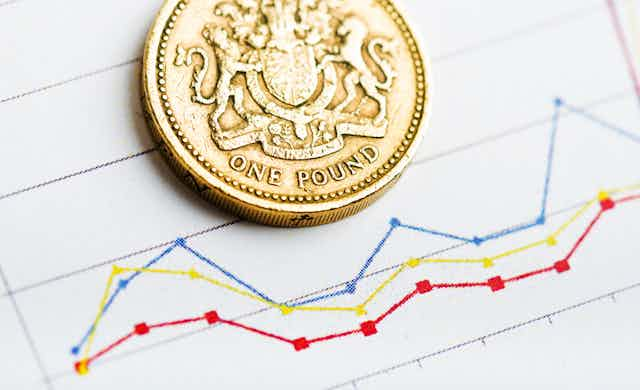The value of the pound plummeted after the Brexit referendum. From close to US$1.50 before the vote to leave the European Union, sterling has now found a new level close to US$1.20. This has been greeted as a welcome boost to UK exporters as it makes it cheaper for other countries to buy British goods. But this is a simplistic take. The reality is far more complicated and dependent on the markets in which these companies operate.
The conventional wisdom about a falling currency and exports fails to acknowledge some fundamental points. Our research highlights that such analysis typically does not account for the existence and nature of a company’s competition, domestically and overseas.
In other words, nimble corporate rivals can quickly adapt to counter any potential gains from currency effects, and that applies to UK-focused firms as well as exporters. Let’s take an example from one of Britain’s favourite pastimes: beer.

Losing its fizz
Our research studied data from 22 multinational firms and nine markets. One such firm was the brewer SABMiller, a British exporter, which competes in an international duopoly with Belgian group AB-InBev, the maker of beer brands such as Budweiser, Corona and Stella Artois. We looked at a period before the companies agreed a merger which was approved by shareholders in September.
Now, under conditions of a falling pound, SABMiller would in theory enjoy an increase in its profits as foreign buyers snapped up products now markedly cheaper in their home currency. However, that assumes that its Belgian rival failed to cut its own product prices by what was required to offset the change in the GBP/EUR exchange rate. If AB-InBev is on the ball, and sensitive to exchange rate changes it can very easily decide to cut its product price by more than the increase in the exchange rate. In that scenario, the profits of SABMiller could fall.

Then, what if you have to factor in a third competitor, such as the Netherlands-based Heineken, which shares the same currency as AB-InBev? This means that the exposure of SABMiller will also be affected by Heineken’s change in its product price in response to the exchange rate fluctuation of the euro relative to the pound. The picture here becomes more complex because the degree to which foreign competitors will change their product prices will also depend on the degree of competition between them in their own home markets. It will also depend on their desire to curb product prices in any attempt to offset a boost to the competitiveness of the UK firm; how much margin they are willing to sacrifice in order to stay competitive.
If our UK brewer also faces a domestic competitor then the picture becomes even more complex. SABMiller’s profits would also be affected by the pricing decisions of that local rival in response to changes in the exchange rate.
In short, these are far muddier waters than some would have you believe. The profits of UK-based exporters might enjoy a brief window of opportunity if rivals are slow to adapt, but earnings could just as easily take a hit from a rapidly changing environment as a sector gets used to new realities. Our conclusions don’t only apply to British exporters. It is the same for any multinational firms which face competitors at the international and local level. The sports market is another good example, with its international oligopoly of US firm Nike, the global leader, and two German firms, Adidas and Puma.
Kindness
It is clear the argument that a weakened currency makes domestic exporters better off is not necessarily true. Whether or not a fall in the currency is a good thing for an industry depends on the market structure, and specifically on the size of the price sensitivities with respect to exchange rates of their international competitors.

When Mark Carney, the governor of the Bank of England, said, that Britain “depends on the kindness of strangers”, he had in mind UK’s heavy current account deficit. We argue that British exporters also “depend on the kindness of rivals”.
There is a clear link between the ability of a firm to pass on the exchange rate changes to its customers and the magnitude of their exposure to rival firms operating in the same market, both domestically and overseas. In our example of the beer market, the ability of AB-InBev to pass on the increase in the euro to the price of its beer affects the profits of SABMiller. The higher the former is, the lower the profits of SABMiller will be. This clearly depends on how loyal (i.e. non-price sensitive) the consumers of the Belgian brewer and SABMiller are.
Our theoretical and empirical results suggest that a falling currency is not always good for exporters. If the companies ignore these complex relationships between firms’ price setting behaviour, profits and exchange rates, mistakes are more likely and sometimes these will benefit the exporters of the appreciating country at the expense of the firms in the depreciating country.
The idiosyncrasies of each market, and the price sensitivity of consumers, will play a significant role in determining whether a devaluation will be beneficial for the exporters of a country. Simplistic arguments that a weakened pound is good for British exporters fail to take these into account.

